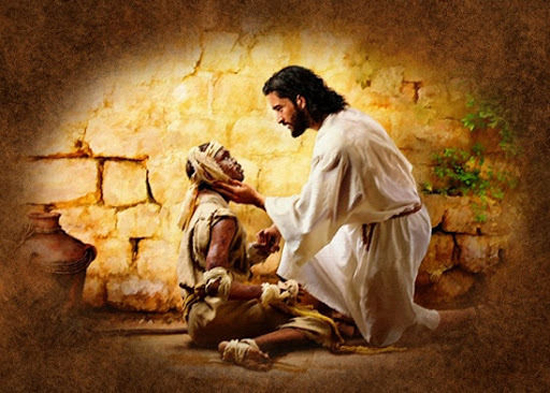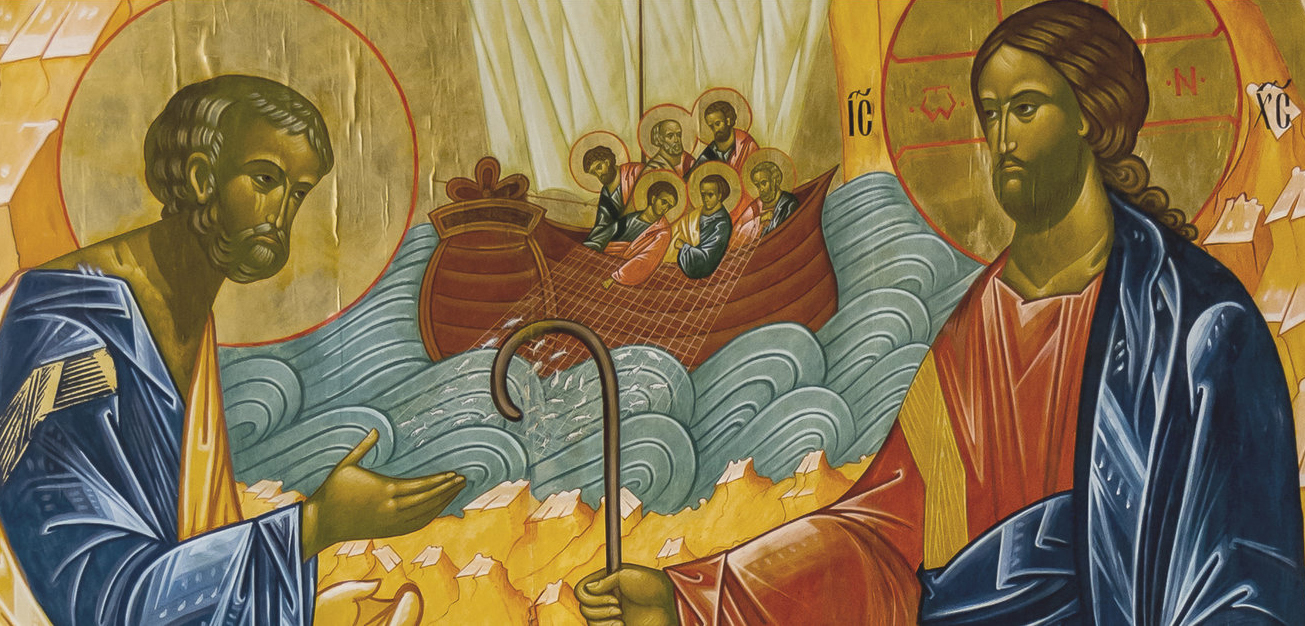Luke 5: 12-16 – Friday after Epiphany – also 11 January (KJV Audio Bible, Spoken Word)
12 ¶ And it came to pass, when he was in a certain city, behold a man full of leprosy: who seeing Jesus fell on his face, and besought him, saying, Lord, if thou wilt, thou canst make me clean.
13 And he put forth his hand, and touched him, saying, I will: be thou clean. And immediately the leprosy departed from him.
14 And he charged him to tell no man: but go, and shew thyself to the priest, and offer for thy cleansing, according as Moses commanded, for a testimony unto them.
15 But so much the more went there a fame abroad of him: and great multitudes came together to hear, and to be healed by him of their infirmities.
16 ¶ And he withdrew himself into the wilderness, and prayed.
In order to find Jesus, the leper in these Gospel verses has had to transgress the law of the time, which was that he must live away from others, because whoever touched him would be impure. The leper has broken the religious laws so as to be with Jesus.
The leper’s mode of address to Jesus is a model of Christian prayer. He displays great confidence in who Jesus is. The leper does not ask Jesus to ask God for healing; rather he says: if thou wilt, thou canst make me clean. He prays to Jesus himself for healing, confessing Jesus’ power as the Son of God. As he does so, the leper does not even ask for Jesus’ healing; all that he knows he need do is to make his need known.
Jesus responds to the leper’s prayer by healing him, cleansing the leper of two evils, that of the leprosy itself and that of the social and religious exclusion attendant upon the leprosy. Jesus heals through the words he speaks: I will: be thou clean. Jesus’ words effect a new reality for the supplicant. And there is more than this, as Jesus heals the leper by touching him.
There is a strange irony here in that, in touching the leper, Jesus himself would be deemed impure. Mark’s Gospel expands upon the implications of this, telling us how the leper ‘went out, and began to publish it much, and to blaze abroad the matter, insomuch that Jesus could no more openly enter into the city, but was without in desert places: and they came to him from every quarter.’ (Cf. Mark 1: 40-45.) We read in Mark of how the leper does indeed tell many people about what has happened, and so Jesus is prevented from entering into the town – a town, as the Greek is also translated – and yet still people flock to be with Jesus, transgression upon transgression!
We might conclude that there is to be much crossing of boundaries as people come to Jesus, and as we ask Jesus to be with us. In our prayer for Jesus’ healing of our sins, perhaps we may find that we are called to unexpected places – perhaps to new attitudes, or to a relinquishing of old ways of thinking and being – and this journey to Jesus may run contrary to the norms of our day. We may pray for faith and confidence to make this journey.
‘He is our physician, and he heals our selfishness, if we let his grace penetrate to the depths of our soul. Jesus has taught us that the worst sickness is hypocrisy, the pride that leads us to hide our own sins. We have to be totally sincere with him. We have to tell the whole truth, and then we have to say: “Lord, if you will” — and you are always willing — “you can make me clean.” You know my weaknesses; I feel these symptoms; I suffer from these failings. We show him the wound, with simplicity, and if the wound is festering, we show the pus too. Lord, you have cured so many souls; help me to recognize you as the divine physician, when I have you in my heart or when I contemplate your presence in the tabernacle.’ St Josemaria Escriva.
Almighty God and Father,
by the guidance of a star
you revealed the birth of the Saviour of the world.
Open our minds to that revelation,
and let it bear fruit in our lives.
Through Christ our Lord.
![]()

![]()








